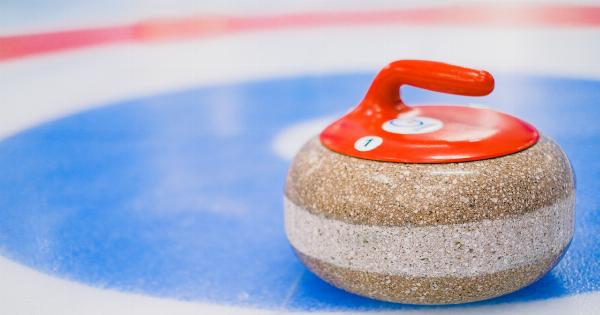Nasal congestion, also known as a stuffy nose, is a common condition that affects millions of people worldwide. Whether it’s due to allergies, a cold, or sinusitis, nasal congestion can be uncomfortable and disruptive.
Breathing becomes difficult, sleep is disrupted, and it can even lead to headaches and fatigue. Fortunately, there are several effective tips and tricks to combat nasal congestion and relieve discomfort. In this article, we will explore the best remedies for nasal congestion, from simple home remedies to medical interventions.
Understanding Nasal Congestion
Nasal congestion occurs when the tissues and blood vessels inside the nose become swollen and inflamed. This inflammation can be caused by various factors, such as:.
- Allergies: Allergic rhinitis, commonly known as hay fever, is a common trigger for nasal congestion. It occurs when your immune system overreacts to allergens in the environment, such as pollen, dust mites, or pet dander.
- Colds and infections: Viral infections, such as the common cold, can lead to nasal congestion. The body’s immune response to the virus causes inflammation in the nasal passages.
- Sinusitis: Sinusitis is an inflammation of the sinuses, often caused by a bacterial or viral infection. It can cause nasal congestion, facial pain, and pressure.
- Nasal polyps: Nasal polyps are noncancerous growths that can develop in the lining of the nasal passages or sinuses. These growths can obstruct airflow and cause nasal congestion.
Home Remedies for Nasal Congestion
If you’re experiencing mild nasal congestion, there are several home remedies you can try to alleviate the symptoms:.
1. Steam Inhalation
Steam inhalation is a simple and effective way to relieve nasal congestion. Fill a bowl with hot water, lean over the bowl, and cover your head with a towel to trap the steam. Breathe deeply for about 10 minutes.
The steam helps to moisturize and soothe the nasal passages, reducing congestion.
2. Saline Nasal Rinse
A saline nasal rinse involves flushing out the nasal passages with a saltwater solution. You can use a neti pot, squeeze bottle, or saline nasal spray for this purpose.
The saline solution helps to thin mucus, moisturize the nasal passages, and remove irritants or allergens.
3. Warm Compress
Applying a warm compress to your face can help alleviate nasal congestion. Soak a washcloth in warm water, wring out the excess water, and place it over your face. The warmth helps to reduce inflammation and open up the nasal passages.
4. Stay Hydrated
Drinking plenty of fluids can help thin mucus and prevent dehydration, which can worsen nasal congestion. Opt for warm liquids like herbal teas, broths, or warm water with lemon and honey to soothe the nasal passages.
5. Elevate Your Head
Sleeping with an elevated head can help drain mucus and relieve congestion. Use an extra pillow or raise the head of your bed slightly to promote better airflow through your nose while you sleep.
Over-the-Counter Remedies
If home remedies don’t provide significant relief, there are several over-the-counter options available to alleviate nasal congestion:.
1. Decongestant Nasal Sprays
Decongestant nasal sprays, such as oxymetazoline or phenylephrine, work by narrowing the blood vessels in the nasal passages, reducing inflammation and congestion. However, these sprays should only be used for a few days to avoid rebound congestion.
2. Oral Decongestants
Oral decongestants, such as pseudoephedrine, can also help reduce nasal congestion. They work by constricting blood vessels throughout the body, including the nasal passages.
These medications may not be suitable for individuals with certain medical conditions, so it’s important to check with a healthcare professional before using them.
3. Antihistamines
If allergies are causing your nasal congestion, antihistamines can provide relief. These medications block the effects of histamine, a chemical released by the immune system during an allergic reaction.
They can help reduce allergy symptoms, including nasal congestion.
4. Nasal Dilators
Nasal dilators, such as nasal strips or nasal clips, help open up the nasal passages and improve airflow. They can be particularly helpful for individuals who experience congestion during sleep or exercise.
When to Seek Medical Treatment
In most cases, nasal congestion can be effectively managed with home remedies or over-the-counter medications. However, there are instances where medical treatment may be necessary:.
1. Chronic Nasal Congestion
If you experience persistent nasal congestion that lasts for more than a few weeks, it’s important to consult a healthcare professional.
Chronic congestion may be a sign of an underlying condition, such as nasal polyps or chronic sinusitis, which may require further evaluation and treatment.
2. Severe Symptoms
If your nasal congestion is accompanied by severe symptoms, such as high fever, severe facial pain, or difficulty breathing, seek immediate medical attention.
These symptoms may indicate a more serious infection or obstruction that requires urgent treatment.
3. Allergic Reactions
If you suspect that your nasal congestion is due to an allergic reaction and it is causing severe breathing difficulties or swelling in the face or throat, seek immediate medical help.
Allergic reactions can be life-threatening and require immediate intervention.
Conclusion
Nasal congestion can be a bothersome and uncomfortable condition, but with the right tips and tricks, relief is within reach.
From simple home remedies like steam inhalation and saline nasal rinses to over-the-counter medications, there are numerous options to combat nasal congestion. However, if symptoms persist or worsen, it is important to consult with a healthcare professional for appropriate diagnosis and treatment. By taking proactive steps, you can effectively manage nasal congestion and breathe easy once again.





























